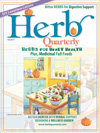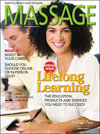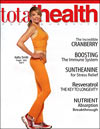The Reiki Digest for November 29, 2006: Routine pleasures
After 9 days and more than 2,000 miles on the road, I'm finally back home and getting back into my regular routine. That in itself seems like a vacation right now. As I enjoy the relaxing warmth of my first cup of tea in the morning or the familiar view from my window as I do my daily qigong exercises, I am reminded of how important routine is to the practice of Reiki. Of course, I didn't stop practicing Reiki while I was away from home, but I wasn't able to take as much time or attention for it as usual.
By the time I discovered Reiki, I already had a regular daily routine of qigong, yoga, and other exercises. The most important part of that isn't any particular practice, but the commitment itself. I have a standing appointment with myself every single day for at least a little exercise and Reiki practice.
I used to avoid routines; I didn't want to have a boring, predictable life (and I succeeded in that!) Now I thrive on them, and I've learned that a routine practice of anything, whether it's exercise or meditation or household chores, provides a framework that makes everything else more manageable.
Of course, The Reiki Digest is now part of my regular routine, and yours, too, I hope.
Part of that routine is our regular Celeb-Reiki feature, which we skipped last week due to the Thanksgiving holiday. This week we make up for that with some big-name Celeb-Reikies.
First up, Celeb-Reiki philanthropists Christy and John Mack, heralded by Forbes for their multimillion-dollar support of alternative medicine, or as Mrs. Mack prefers to call it, integrative medicine. Mrs. Mack is a Reiki practitioner herself, as well as the daughter of a doctor; Mr. Mack is chairman of Morgan Stanley. Not only have the Macks given generously to the cause themselves, but they also organized with other philanthropists to form the Bravewell Collaborative, an innovative group of business leaders who have contributed more than $21 million so far toward getting integrative medicine training included in university programs.
Our next Celeb-Reiki is author Diana Amadeo, who credits Reiki with her spontaneous recovery from multiple sclerosis in an interview with the Boston Globe.
This week's other Celeb-Reiki may or may not be a Reiki practitioner, but he's definitely a celebrity: cancer survivor and retired cyclist Lance Armstrong. The Lance Armstrong Foundation offers all kinds of resources for people with cancer and supports numerous programs that include Reiki. The recent Livestrong Summit was just one example, as illustrated by a story in the Daily Tribune of Hibbing, Minnesota, which featured a local Reiki practitioner who attended.
Armstrong isn't mentioned in the first article of this week's Reiki Roundup, but you might notice the yellow "Livestrong" bracelet in the photo accompanying a piece about a local healing circle in the News-Post of Frederick, Maryland.
In Andover, Massachusetts, Reiki gets a mention in a well-timed article in the Eagle-Tribune headlined "Don't forget to nurture yourself as holidays approach" -- good advice for all of us.
Nearly every week we find a first-person article from a reporter who received a Reiki session, and this week it's a reporter for the Daily Record in Scotland.
The Comox Valley Record in Courtenay, British Columbia, Canada, features a brief but nicely done article about a local Reiki practitioner that might inspire practitioners elsewhere to send a press release to their local press.
Our penultimate stop this week: Clarksville, Tennessee, where the local Leaf-
Chronicle features not one but two articles about Reiki, complete with a nice photo.
One is headlined, "Reiki promotes healing, relaxation"; the other is "Learn about reiki through treatment."
Finally, we travel to Australia for this year's final podcast of The Reiki Show from the International House of Reiki, this week featuring shakuhachi flute master Bronwyn Kirkpatrick. Reiki Show hosts Bronwen and Frans Stiene will be taking some well-deserved time off for the holidays and have assured us they'll be back with more podcasts beginning in January.
Reviewing Reiki Online Project update: We've received a few reviews so far, but not many, so if you'd like to review one or more sites, please add your comments using our review form.
Next week, our first annual holiday shopping edition, featuring book reviews, new Reiki products, and suggestions for Reiki-related gifts for all the practitioners on your list. If you'd like to recommend a book, a CD, or other Reiki-related product, simply reply to this message (if you're reading this by e-mail) or post a comment (if you're reading this on the web site).































